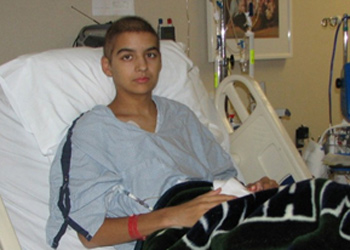
Neuroblastoma is the most common extracranial solid tumor of childhood arising within the developing nervous system. Approximately half of neuroblastoma patients are diagnosed with high-risk disease, which is especially aggressive with a 50% survival rate. If a child’s high-risk neuroblastoma relapses after receiving chemotherapy, overall survival plummets below 20%. The few children that do survive often suffer significant long-term treatment related toxicities and are at a higher risk for secondary malignancies.
Dr. Hunter Jonus, PhD, a CureSearch Young Investigator at Emory University’s Department of Pediatrics, pioneers cellular immunotherapy for high-risk neuroblastoma. Utilizing gamma delta (γδ) T cells, extracted from healthy donors and expanded ex vivo, she targets neuroblastoma and other tumors. Jonus’s groundbreaking research fuels a first-in-child clinical trial at Children’s Healthcare of Atlanta, combining γδ T cells with chemoimmunotherapy. Her future focus lies in enhancing γδ T cell therapy’s efficacy by engineering cells with chimeric antigen receptors and cytokine secretion for improved tumor recognition and longevity. Jonus also plans to integrate immune checkpoint blockade to maximize γδ T cell functionality, aiming for safer and more effective high-risk neuroblastoma treatment.
“I am ecstatic to be selected as a CureSearch Young Investigator and for the opportunity to conduct this meaningful research with significant potential to impact patients’ lives. I am hopeful for the future of γδ T cell immunotherapy and its possibility to overcome barriers in the field of adoptive cell therapy so that more patients will be able to receive this powerful treatment approach.”



